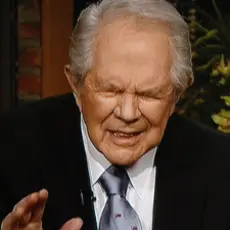While Religious Right activists like Pat Robertson regularly rail against the terrible oppression Christians in America suffer due to the liberals’ supposed “War on Christmas,” his very own show, “The 700 Club,” reminded us today who led the original “War on Christmas” in America: the Pilgrims.
Reporter Paul Strand reported today on how the Pilgrims were “some of history's most fervent opponents of Christmas.”
In her Patheos blog yesterday, Beth Allison Barr reminded us of how the War on Christmas went down in England:
Here’s the story in brief–as related by Diane Purkiss in The English Civil War: While Charles I was fighting during the 1640s for his crown (which he would lose along with his life in 1649), an increasingly radical Parliament governed England. In the words of Purkiss, “that transhistorical killjoy a Parliamentary subcommittee” was created in 1643 to reform the Church of England. It regarded the liturgical calendar of medieval Christianity as both a symbol of Catholicism and a distraction from the Gospel. Sunday was the only holy day worth honoring. All other festivals, including Christmas, should be cancelled.
Of course, this was easier said than done. Christmas was a beloved holiday revered in Tudor England. Asking people to give up Wassailing and Twelfth Night cake, not to mention their days off work, proved nigh impossible. Many people simply ignored the parliamentary decree of the “Solemn League and Covenant” subcommittee in 1643 and refused to go to work on Christmas day. Parliament cracked down in 1644 with an ordinance enforcing the Sunday fast day instead of the usual Christmas feast; in 1645 Parliament again declared Sunday and occasional celebrations as the only recognized holidays; finally in 1647 Parliament issued an ordinance officially cancelling all Christmas and Lenten celebrations, even arresting clergy preaching Christmas day sermons.
Despite initial resistance, this “War on Christmas” almost succeeded. Purkiss argues that the death of Oliver Cromwell in 1658 is what really “saved” Christmas (my apologies to Kirk Cameron’s movie last year). Although the ordinances were never fully realized–mobs forced Christmas celebrations in some areas–and even though the popularity of Edward Fisher’s 1649 defense of Christmas–which sold 6000 copies–suggests continued support for the holiday season, Purkiss argues that most people were beginning to conform “sulkily” by the 1650s. As Purkiss writes, “if the republic had lasted ten years longer, the old festive calendar would have been dead beyond recall.”






